Education: Teachers
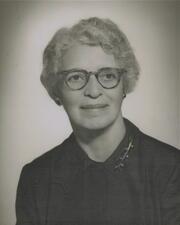
Sophie Rabinoff
Sophie Rabinoff used the skills she honed as a doctor in Palestine to improve health care in some of the worst slums in New York. Her innovative work helped to establish the fields of public health and preventive medicine in both the United States and Palestine.
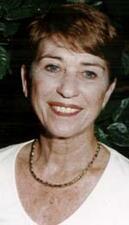
Daniella Rabinovich
Following decades of intensive work in management of Israeli music institutions, Daniella Rabinovich became a leading figure in the field in Tel Aviv in the 1980s and 1990s, serving as director of the Tel Aviv Conservatory.
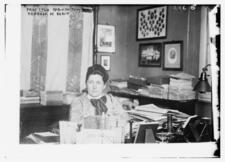
Lydia Rabinowitsch-Kempner
An outstanding bacteriologist and a leading figure in the feminist movement of women scientists in Germany in the first three decades of the twentieth century, Lydia Rabinowitsch-Kempner was a pioneer among women scientists, an exception among the first generation of women scientists in her combination of career and family.
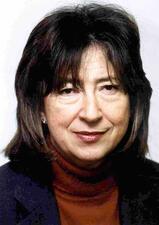
Frances Raday
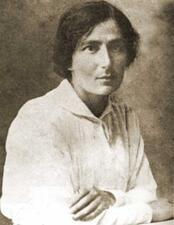
Rahel Bluwstein
The "founding mother" of modern Hebrew poetry by women, Rahel Bluwstein achieved in death the status of a national cultural icon. Rahel’s affiliation with the avant-garde group of Second Aliyah pioneers to pre-state Palestine, her dedication to Zionist ideals, and her agonizing death made her a beloved pioneering figure in Israel.
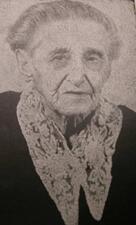
Puah Rakovsky
Puah Rakovsky dedicated her life to working towards the empowerment of Jews, particularly of Jewish women. She was a revolutionary woman, taking on important roles as an educator, translator, organizer of women, and an early socialist Zionist.
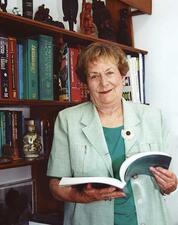
Bracha Ramot
Flora Sophia Clementina Randegger -Friedenberg
Born in Italy in 1825, Flora Sophia Clementina Randegger-Friedenberg was a persistent educator and writer. She is best known for the publication of her Jerusalem journal, which shared her extraordinary experiences in a way that combined messianic hope and the enlightenment ideals of knowledge and progress.
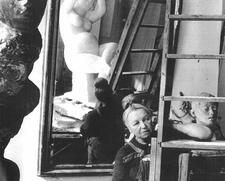
Antonietta Raphaël
Painting and sculptor Antonietta Raphaël rose to fame in the 1950s. Her paintings were seen for the first time in Rome in 1929; during World War II, she took up sculpting, and in the 1950s, she rose to prominence and exhibited her works worldwide.
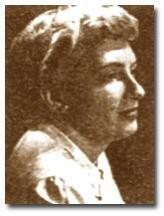
Lydia Rapoport
Lydia Rapoport was a social worker, professor, caseworker, and advocate of social change. Her contributions to crisis theory transformed how social workers and therapists handle crisis intervention.
Judith Raskin
An operatic soprano, Judith Raskin was one of the most outstanding musical artists of the twentieth century. Known for her performances and unique teaching methods, Raskin played more than 60 roles for prestigious opera companies across the United States, sang lieder and orchestral works, and taught at the Manhattan School of Music and the 92nd Street Y.
Elizabeth Brandeis Raushenbush
Following in the footsteps of her famous father, Supreme Court Justice Louis Brandeis, Elizabeth Brandeis Raushenbush became an expert on labor legislation in the United States and one of its strongest defenders.
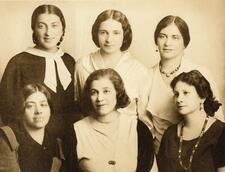
Sarah Reisen
Sarah Reisen was both a gifted Yiddish writer in her own right and a respected translator of great literature into Yiddish for children and adults. Recognized by contemporaries for her humane literary sensibility, she brought to Yiddish literature not only her own creative works but also her translations, which introduced readers of all ages to world literature.
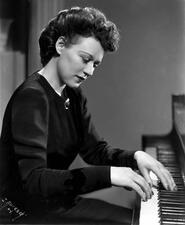
Nadia Reisenberg
Whether recording a Brahms sonata with clarinetist Benny Goodman, enjoying her three grandsons, or giving a master class in Jerusalem, pianist Nadia Reisenberg’s joy in relationships radiated from her. Reisenberg used her talents to connect with others, from her acclaimed performances with her sister to her years of training musicians in New York and Jerusalem.
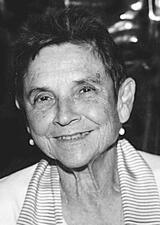
Adrienne Cecile Rich
Adrienne Rich was an influential poet, thinker, and political activist. In her essays and poems, Rich explored the intersections of the personal and the political, focusing in particular on questions of identity while drawing on her own experiences as a woman, a lesbian, and a Jew.
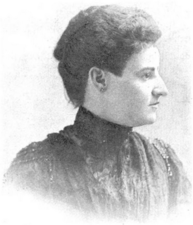
Julia Richman
A polarizing and important social reformer, Julia Richman sought to better manage the massive influx of immigrants in New York by Americanizing the new arrivals as quickly as possible, particularly through intense training in English. An educator who eventually became district superintendent of the Lower East Side schools in 1903, she created playgrounds, improved school lunches, and enforced health examinations for students.
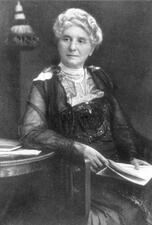
Elise Richter
Elise Richter could not pursue a university degree until she was in her 30s, when she became part of the first group of women to study at the University of Vienna. She received doctoral and post-doctoral degrees and subsequently taught classes on various Romance languages while publishing extensively, making important contributions to the field of historical and comparative linguistics.
Nacha Rivkin
Orthodox Jewish education for women in America began with the work of Nacha Rivkin, a founder of Shulamith School for Girls, the first girls’ yeshiva in the United States. A courageous and proficient “doer,” Rivkin broke out of the mold of the passive, religious homemaker in her commitment to action. Through her music and artwork, she expanded the range of career possibilities for Orthodox women of her time.
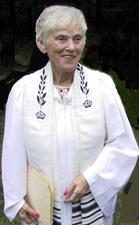
Betty Robbins
Betty Robbins is often heralded as the first female cantor – in fact, that honor goes to Julie Rosewald. However, Robbins was the first woman to be officially designated as cantor. The Board of Trustees at Temple Avodah in Oceanside, New York unanimously appointed Robbins as their cantor in 1955.
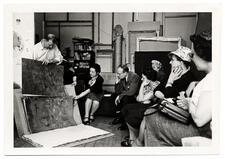
Colette Roberts
Colette Roberts devoted her life to increasing people’s understanding and appreciation of modern art. The success she earned as a gallery director, art critic, and educator influenced the art world of the mid-twentieth century in New York and Paris and throughout the world.
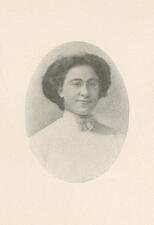
Sophia Moses Robison
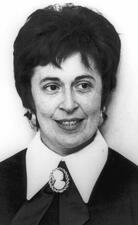
Gladys Rosen
Gladys Rosen created resources that changed how people approached Jewish history. As program specialist for the American Jewish Committee, she published Guidelines to Jewish History and Social Studies Instructional Materials, which offered summaries of Jewish history and resources for teaching Judaic studies. She went on to coedit a number of books on Jewish culture and history and was an interviewer on the radio program, Jewish Viewpoint.
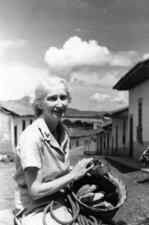
Doris Rosenthal
Esther Rosenthal-Shneiderman
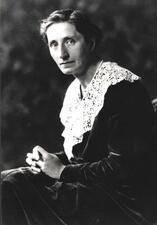
Alice Salomon
Alice Salomon was an educator, feminist, economist, and international activist who was one of the pioneers of the emerging field of professional social work in Germany in the early 20th century. In 1925 she was among the founders of the German Academy for Women’s Social and Educational Work, and she later served as the first president of the International Committee of Schools of Social Work.


